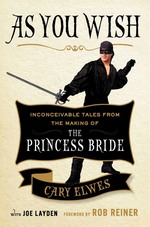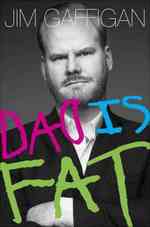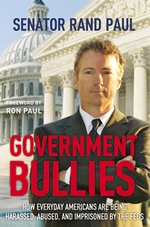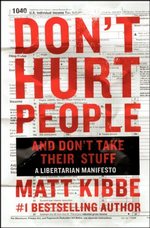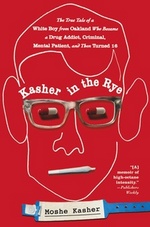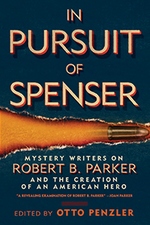A briefer version of this appears on Goodreads.
—–

How to Read Literature by Terry Eagleton
My rating: 4 of 5 stars
I noted earlier this week my displeasure in the way Tony Reinke seems to treat books, but in a way that didn’t quite express what I was going for as clearly as I intended/desired. Imagine how pleased I was to encounter this statement in the beginning of this book:
The most common mistake students of literature make is to go straight for what the poem or novel says, setting aside the way that it says it. To read like this is to set aside the ‘literariness’ of the work — the fact that it is a poem or play or novel, rather than an account of the incidence of soil erosion in Nebraska.
I realize I’m in the minority when I think that reading a book on literary criticism (albeit an introduction) sounds like a pleasant — maybe fun — way to spend a few hours. But Terry Eagleton gave us just that kind of book for anyone who’s at least a semi-serious reader (even less than serious, but I can’t imagine anyone else reading this). Covering a wide-range of topics, Eagleton writes with verve and panache, producing and educational as well as entertaining volume.
We don’t get a concise definition of literature, as if that was possible, but he hints at one in various places. The hint that resonated most with me was:
Part of what we mean by a ‘literary’ work is one in which what is said us to be taken in terms of how it is said. It is the kind of writing in which the content is inseparable from the language in which it is presented.
Over five lengthy chapters, Eagleton looks at both micro and macro issues of criticism. The first chapter looks at opening lines, paragraphs, scenes on the micro-level: ambiguities of language, sounds, syntax, word choice, etc. After this introduction, he zooms out to the macro level spending a chapter each on Character, Narrative, Interpretation and Value. Throughout all these, he bounces from illustration to illustration over a spectrum of literature — novels, plays, poetry. Some of which he spends a long time on, some only sentences.
Eagleton isn’t shy about making sure the how of what he says is as important as the what himself — there were so many quote-worthy lines or observations in this book that even if his conclusions were worthless it would be a pleasure to read. While discussing character, how they are limited to what’s on the page and really have no futures, presents or pasts beyond that, he says,
Some Victorian novels end by peering fondly into their characters’ futures, imagining them growing old, grey and gleeful among a horde of frolicsome grandchildren . . . But peering fondly into one’s characters’ futures is, of course, simply a literary device. Literary figures do not have futures, any more than incarcerated serial killers do.
Or, while setting the stage to discuss Intepretation of literature, he notes
In discussing interpretation of literature, we “assume that [language] is intended to have some value in itself.” “This is not so true of every day language. A panic-stricken shout of ‘Man overboard!’ is rarely ambiguous. We do not normally treat it as a delectable piece of wordplay. If we hear this cry while on board ship, we are unlikely to linger over the way the vowel-sound of ‘board’ rings a subtle change on the vowel-sound of ‘Over’, or note the fact that the stresses of the shout fall on the first and last syllables. Nor would we pause to read some symbolic meaning into it. We do not take the word ‘man’ to signify humanity as such, or the whole phrase as suggestive of our calamitous fall from grace.
Again, take that Reinke.
As much as we might want to — or are inclined to — forget that Jane Eyre, Mr. Rochester, or Don Quixote aren’t real people and what we read about them didn’t actually happen, these are man-made artifacts. It is not the world we live in, but a look at a world we can understand, a tool to help us reflect on our reality
Realism appears to give us the world in all its delightful or alarming disheveledness, but it actually does no such thing. If a telephone rings in a realist novel or a naturalistic drama, it is almost certain to be a move in the plot rather than a wrong number.
Eagleton does, as is pretty common in my experience, show a distinct preference towards literary realism over other genres or approaches. But he sees its limits and inherent difficulties — some of which less classical/pre-modern, more modern and post-modern works can move beyond. It’s here that he can speak more profoundly about not just literature, but life itself (laying aside how correct he might be).
It may be helpful in this response to think of narrative as a kind of strategy. Like any strategy, it mobilizes cerain resources and deploys certain techniques to achieve specific goals. A good many realist novels can be seen as problem-solving devices. They create problems for themselves which they then seek to resolve. Human beings who do this may find themeseves being referred to psychiatrists, but it is the kind of thing we expect of realist fiction. If there is to be narrative suspense, however, difficulties must not be cleared up too quickly. Emma Woodhouse must end up in Mr Knightley’s arms, but not in the second paragraph. In resolving one kind of problem, however, literary works may simply succeed in throwing up another, which needs to be tackled in its turn. Modernist and postmodernist literary works are generally less interested in solutions. Their aim is rather to lay bare certain problems. They do not typically end with fast-living fraudsters being hung upside down from lap posts, or a set of blissful marriages. And in this, one might suggest, they are more realistic than most realism. . .
For classical realism, the world itself is story-shaped. In a lot of modernist fiction, by contrast, there is no order apart from what we ourselves contsruct. And since any such order is arbitary, so are fictional openings and endings. There are no divinely ordained origins or natural closures. Which is to say that there are no logical middles either. . . .
Some modernist works are thus skeptical of the whole notion of narrative. Narrative suggests that there is a shapeliness to the world, an orderly procession of causes and effects. . .
Works of fiction [in the modernist or postmodernist vein] can serve to free us from seeing human life as goal-driven, logically unfolding and rigorously coherent. As such, they can help us to enjoy it more.
I found the chapter on interpretation the most rewarding. His reading of “Baa, Baa, Black Sheep” was at once preposterous, laughable (and laugh-worthy) and entirely sound. Just getting to it was almost worth the effort of the rest of the book. Shortly after that, Eagleton enters into a lengthy discussion of Great Expectations through the prisms of a variety (by no means exhaustive) of interpretive methods for approaching the text. He then moves to a quick (but not shallow) look at another orphan — Harry Potter (which includes a quick glance at Luke Skywalker). I quite enjoyed and agreed with his take on The Boy Who Lived, incidentally. Not only did that serve to compare popular British literature over the years, it served as a good transition to the concluding chapter on the value of literary works — is Harry Potter worth a critic’s attention?
That chapter does a better job at raising interesting questions than actually answering any of them (which I think was his point, if not, he failed utterly). I did appreciate this bit of an answer (which led to further questions, I should note):
Enjoyment is more subjective than evaluation. Whether you prefer peaches to pears is a question of taste, which is not quite true of whether you think Dostoevsky a more accomplished novelist than John Grisham. Dostoevsky is better than Grisham in the sense that Tiger Woods is a better golfer than Lady Gaga. Anyone who understands fiction or golf well enough would be almost bound to sign up to such judgements. . . If literary judgments were objective in that sense there would be no arguing over them, and you can wrangle far into the night over whether Elizabeth Bishop is a finer poet than John Berryman. Yet reality does not divide neatly down the middle between objective and subjective. The point is that there are criteria for determining what counts as excellence in golf or fiction, as there are not for determining whether peaches taste better than pineapples. And these criteria are public, not just a question of what one happens privately to prefer. . . Knowing what counts as excellence in fiction is likely to decide the issue between Chekhov and Jackie Collins, but not between Chekhov and Turgenev.
It’s been a long time since I sat in an Literature class, listening to a lecture on or discussing a work like he does here. I’m not sure I learned much from this, but it was great to be reminded of this sort of work.
 Pin Action: Small-Time Gangsters, High-Stakes Gambling, and the Teenage Hustler Who Became a Bowling Champion
Pin Action: Small-Time Gangsters, High-Stakes Gambling, and the Teenage Hustler Who Became a Bowling Champion



